Had this faulty Pac-Mania boardset in a trade some years ago :
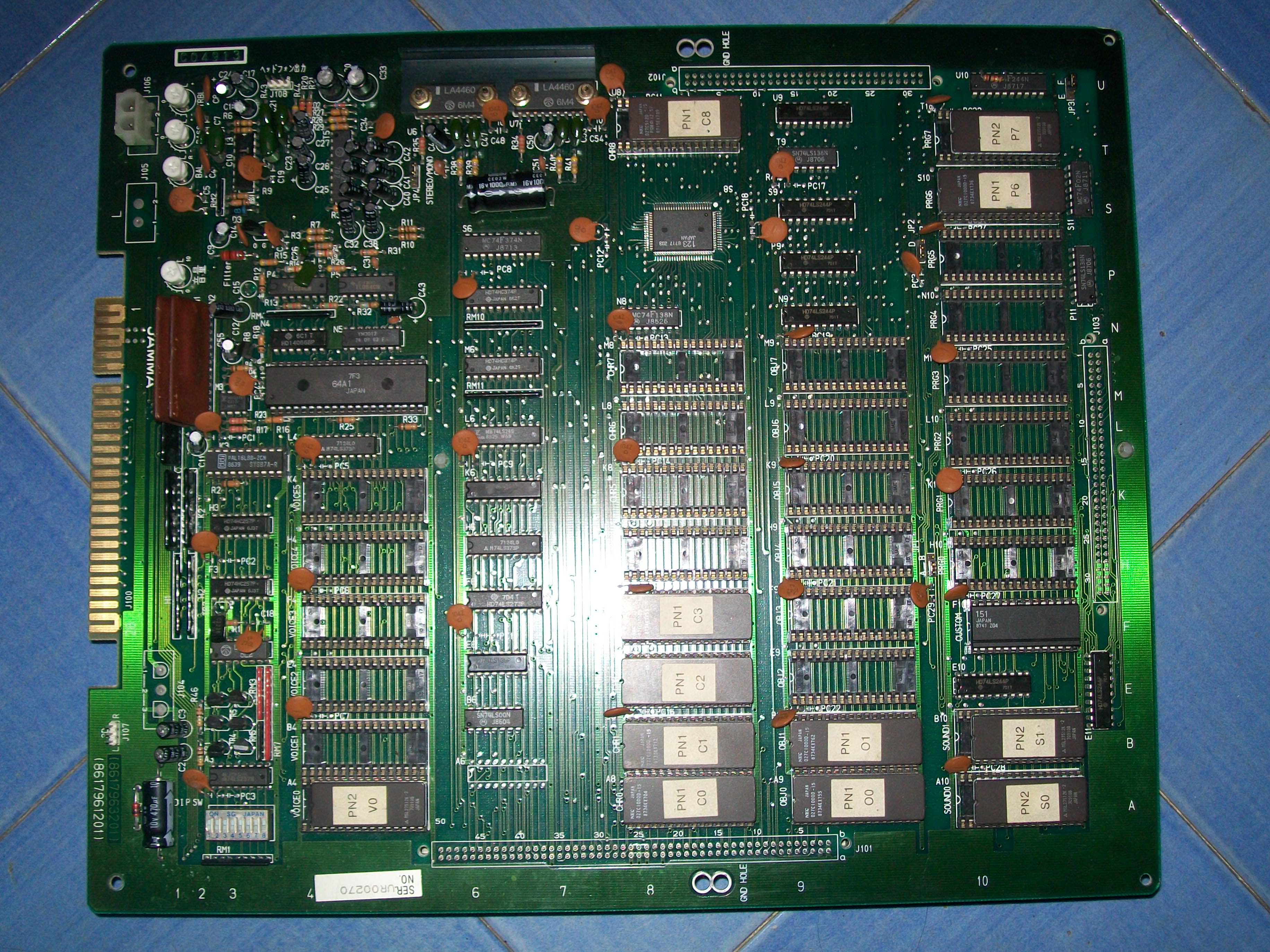
As many of you know, this game runs on Namco System 1 hardware (made of a CPU and ROM board) which features some classic titles like Splatterhouse, Galaga88 and others.Here are the tech specs :
Processors:
- Main CPU: Motorola M6809 @ 2.048 MHz
- Sub CPU: Motorola M6809 @ 2.048 MHz
- Sound CPU: Motorola M6809 @ 1.536 MHz
- MCU: Hitachi HD63701 @ 1.536 MHz
Sound:
- Yamaha YM2151 FM sound chip @ 3.57958 MHz
- Custom 8-channel wavetable stereo PSG @ 96 kHz
- 2-channel DAC
My board had two noticeable faults : the sprites had wrong colors in certain positions and music was missing, only some FXs were present :
For first I swapped the boards with a good set and could narrow the fault in the CPU one (the smaller one) :
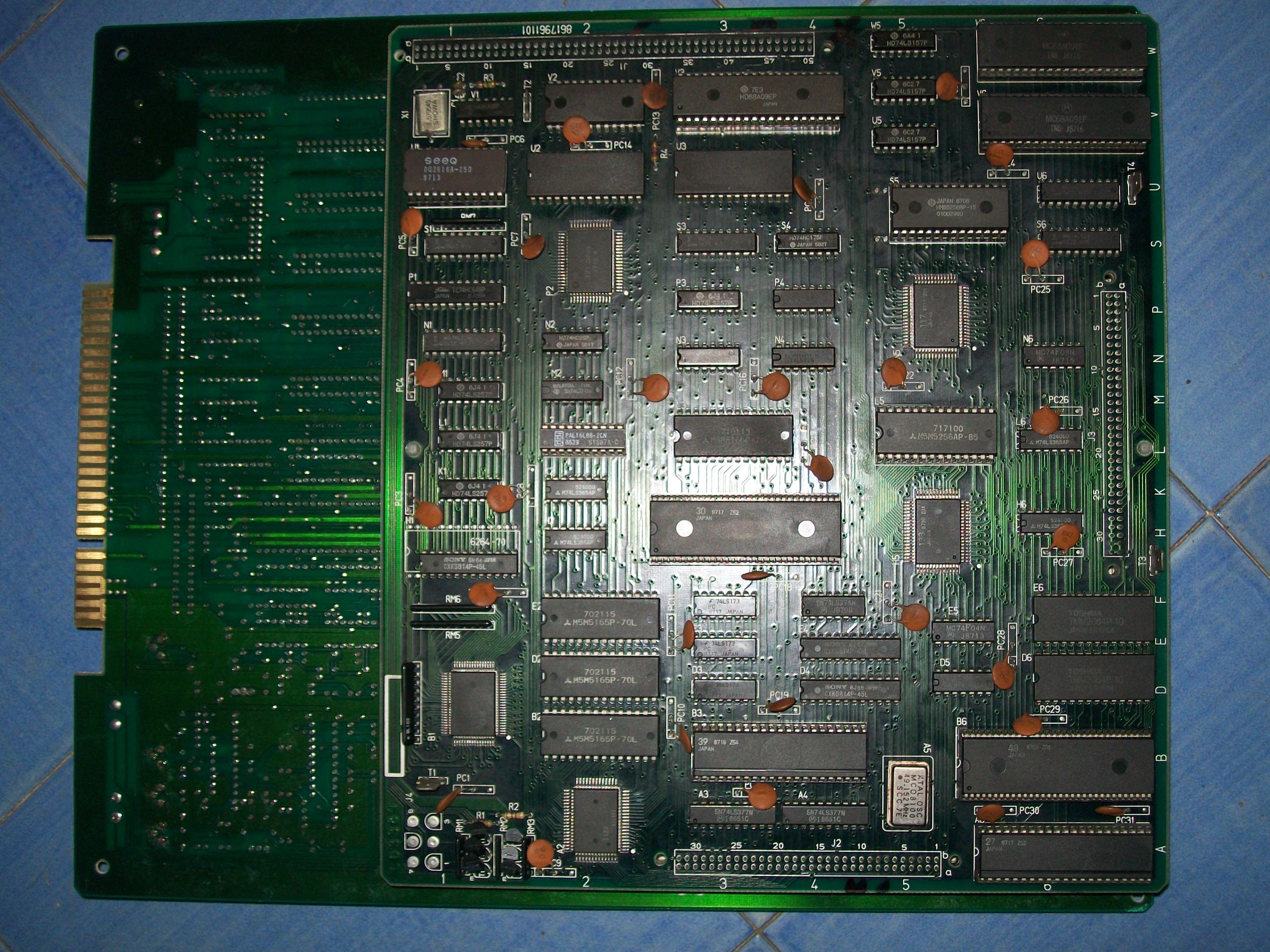
As you can see , hardware uses many custom ICs each of which with different functions, here are the ones used on CPU board (taken from MAME source)
- CUS27 clock divider
- CUS30 sound control
- CUS39 sprite generator
- CUS48 sprite address generator
- CUS95(x5) I/O interface
- CUS99(x2) sound volume
- CUS116 display output generator
- CUS117 main/sub CPU MMU
- CUS120 sprite/tilemap mixer and palette address interface
- CUS121 sound CPU address decoder
- CUS123 scrolling tilemap address generator
- CUS133 tilemap generator
The sprites are generated by the custom ’39’ which I test as good in another board (as well as all the other customs).This IC addresses two 8K x 8-bit static RAMs @D4 and E4:
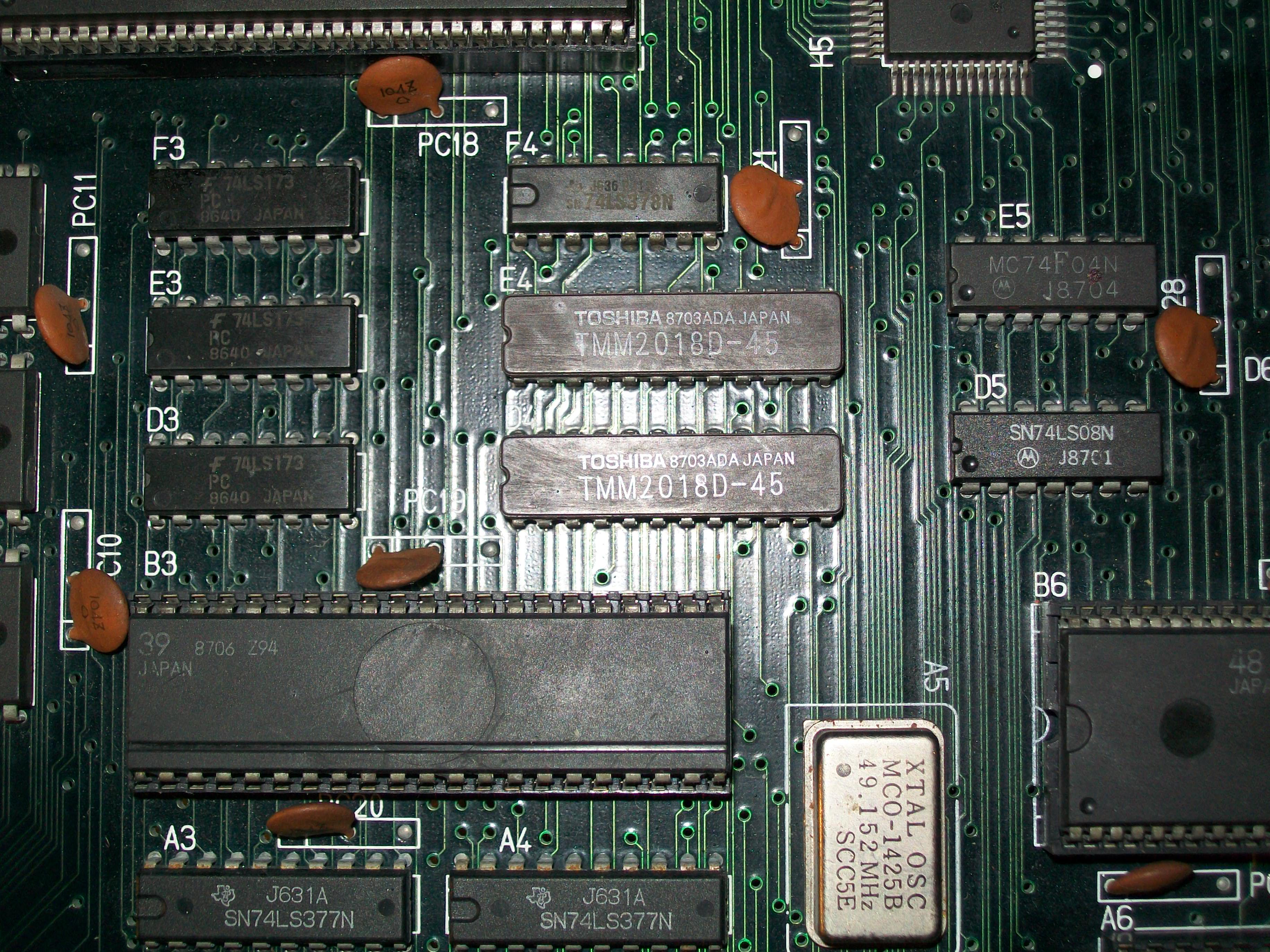
Checking this ares against schematics I found a broken trace between pin 1 (address line A7) of both RAMs:
![]()
Patching the trace restored the sprites so I went to troubleshoot the sound issue.As said music was missing and game behaved strangely since I was not able to really enter in game, the selection screen was repeating in an endless loop:
The music is generated by the YM2151 sound synthesis IC but probing its bus revealed no data coming to/from I/O lines:
The custom ‘121’ sits between the data bus of the 6809 audio CPU and YM2151:
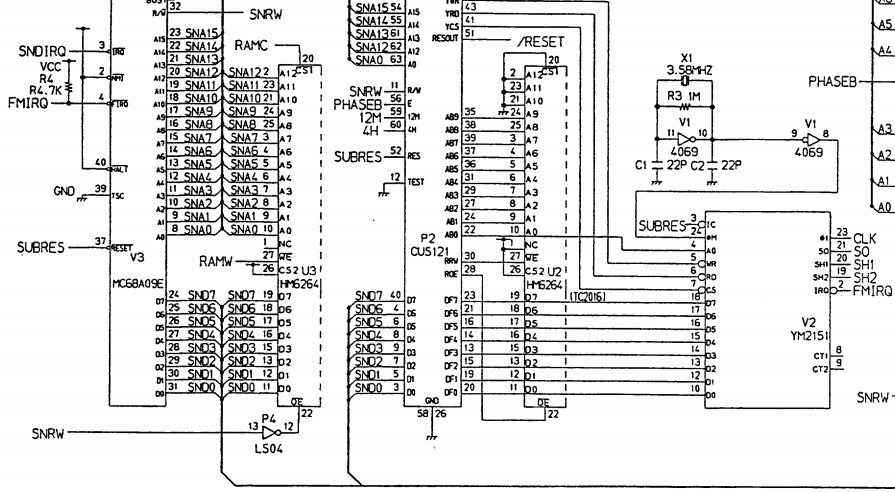
I replaced it :
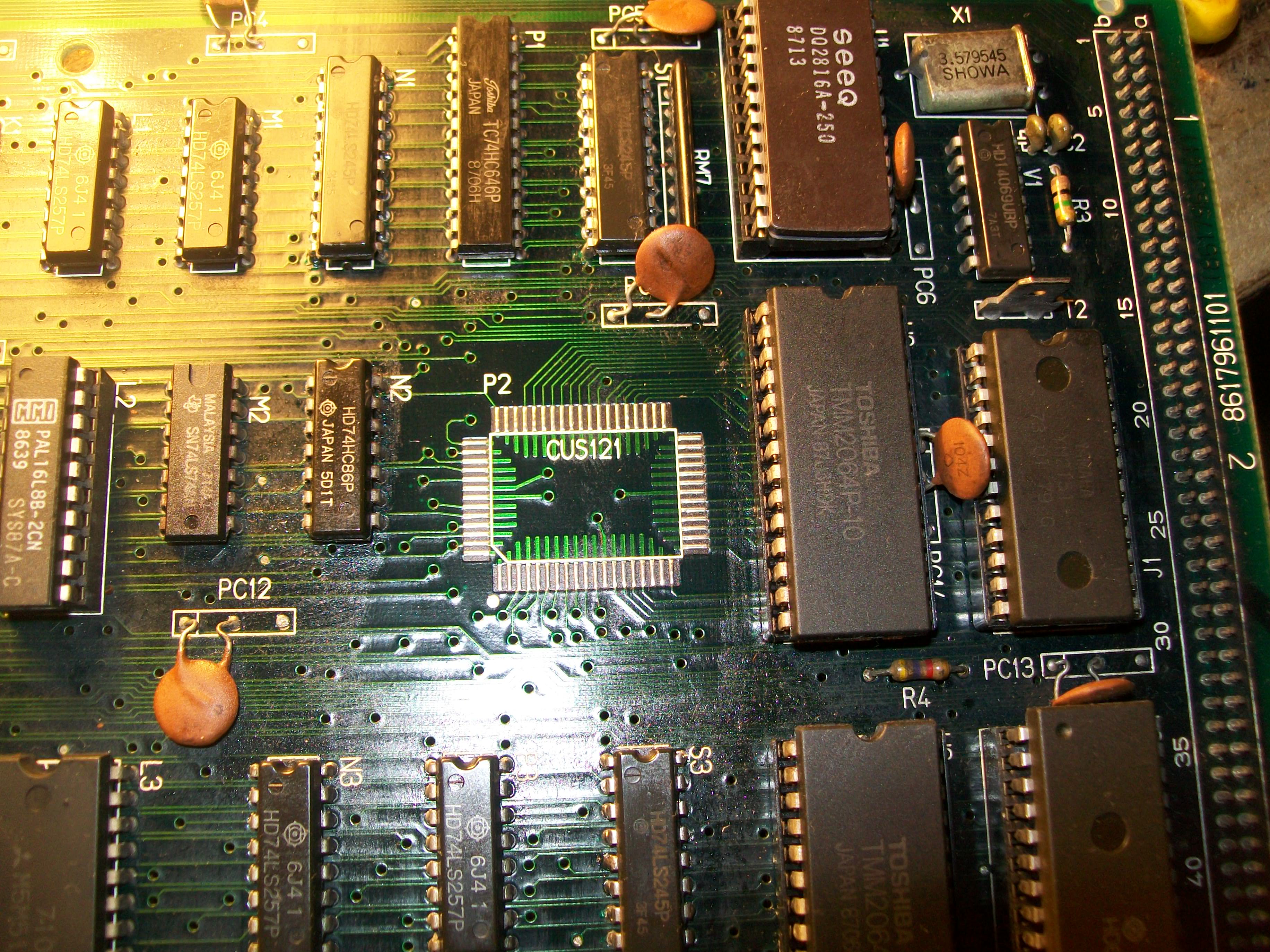
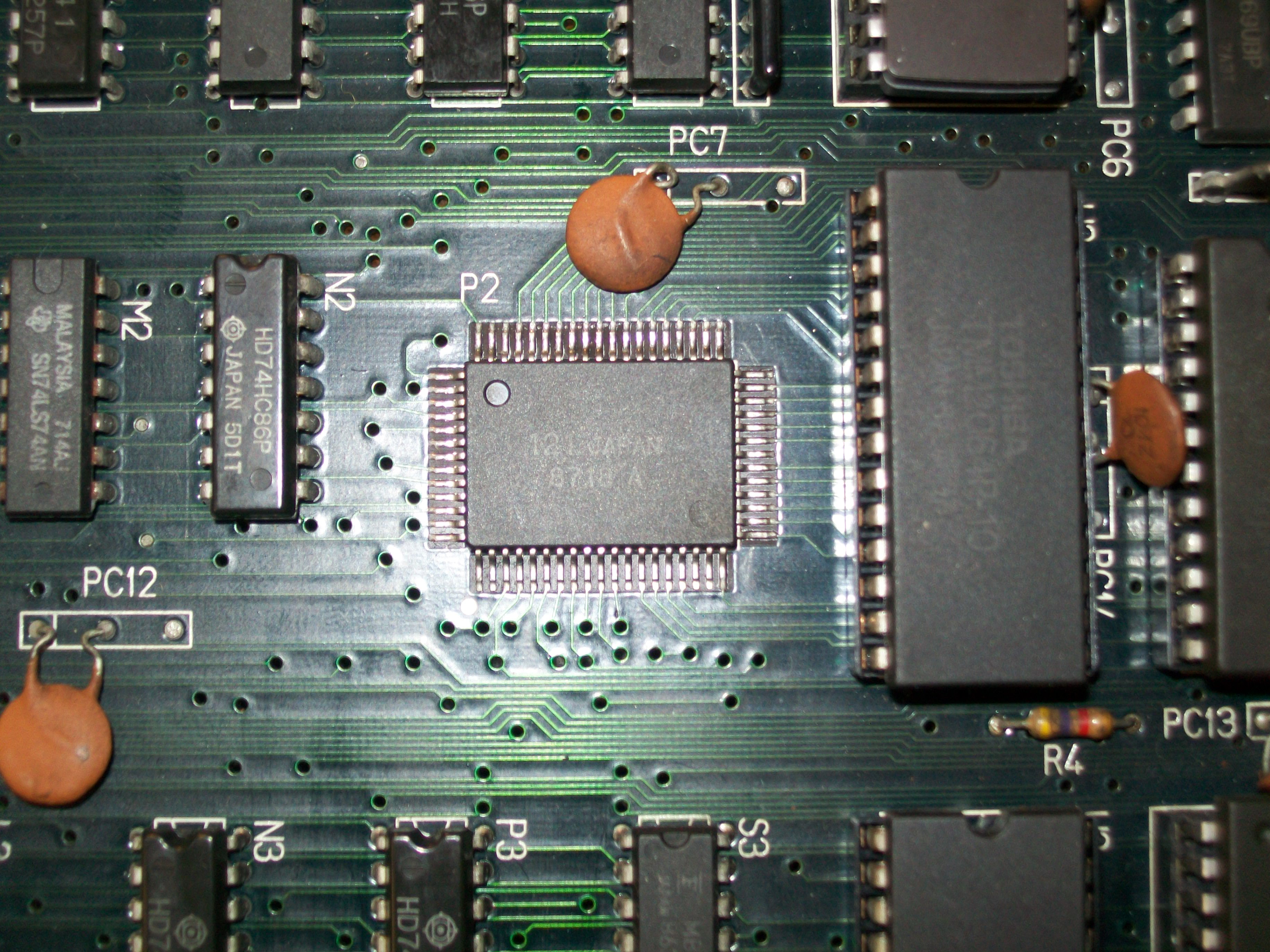
but this didn’t fix the issue, music was still missing.The TEST mode gave me a “SOUND RAM2 ERROR” which is not covered in the service manual:
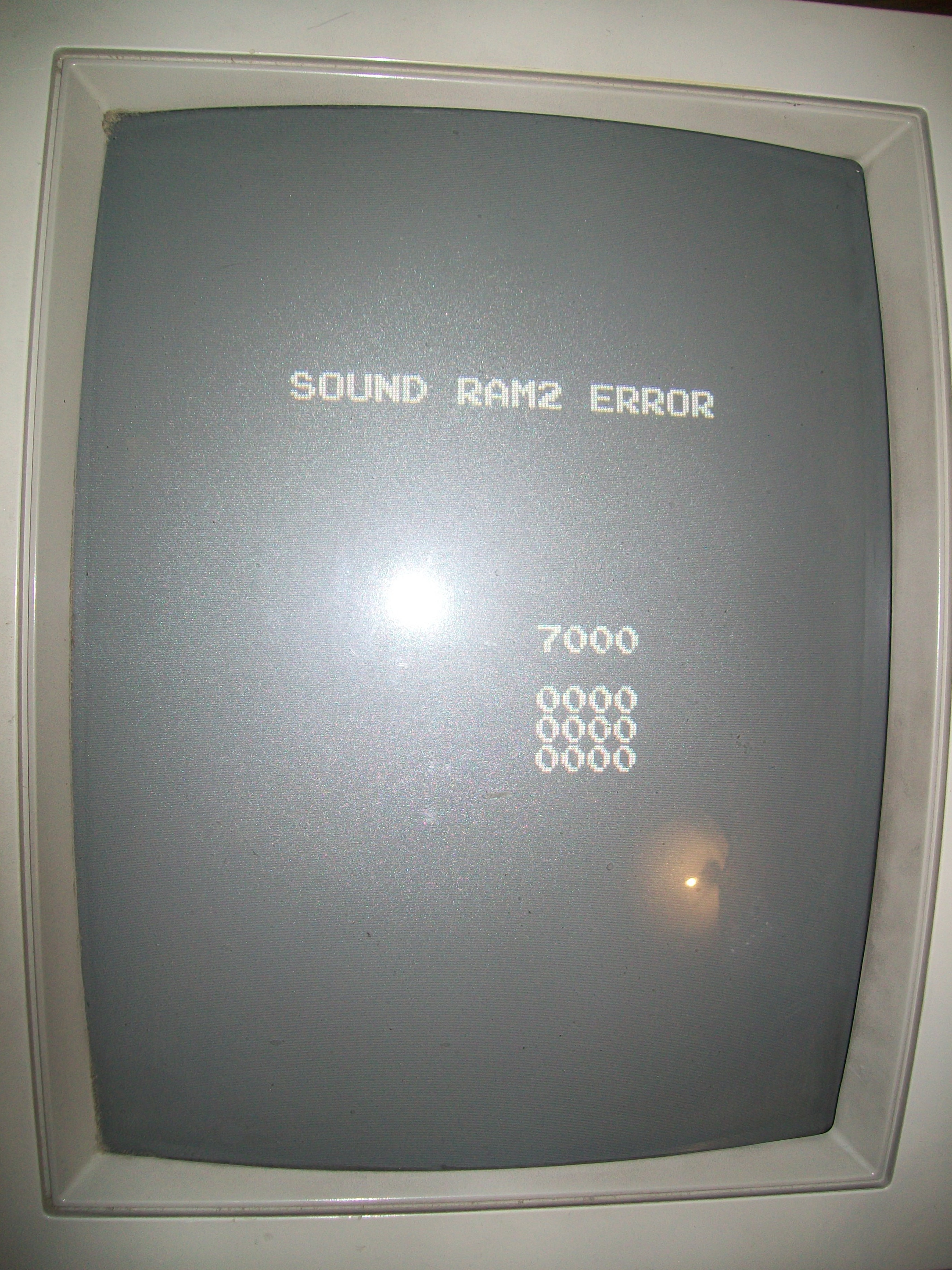
Looking at MAME sound memory map :
static ADDRESS_MAP_START( sound_map, AS_PROGRAM, 8, namcos1_state ) AM_RANGE(0x0000, 0x3fff) AM_ROMBANK("soundbank") /* Banked ROMs */ AM_RANGE(0x4000, 0x4001) AM_DEVREAD("ymsnd", ym2151_device, status_r) AM_RANGE(0x4000, 0x4001) AM_DEVREADWRITE("ymsnd", ym2151_device, read, write) AM_RANGE(0x5000, 0x53ff) AM_DEVREADWRITE("namco", namco_cus30_device, namcos1_cus30_r, namcos1_cus30_w) AM_MIRROR(0x400) /* PSG ( Shared ) */ AM_RANGE(0x7000, 0x77ff) AM_RAM AM_SHARE("triram") AM_RANGE(0x8000, 0x9fff) AM_RAM /* Sound RAM 3 */ AM_RANGE(0xc000, 0xc001) AM_WRITE(sound_bankswitch_w) /* ROM bank selector */ AM_RANGE(0xd001, 0xd001) AM_DEVWRITE("c117", namco_c117_device, sound_watchdog_w) AM_RANGE(0xe000, 0xe000) AM_WRITE(irq_ack_w) AM_RANGE(0xc000, 0xffff) AM_ROM AM_REGION("audiocpu", 0) ADDRESS_MAP_END
this error is related to the part of circuit called ‘TRI PORT RAM’ in schematics :
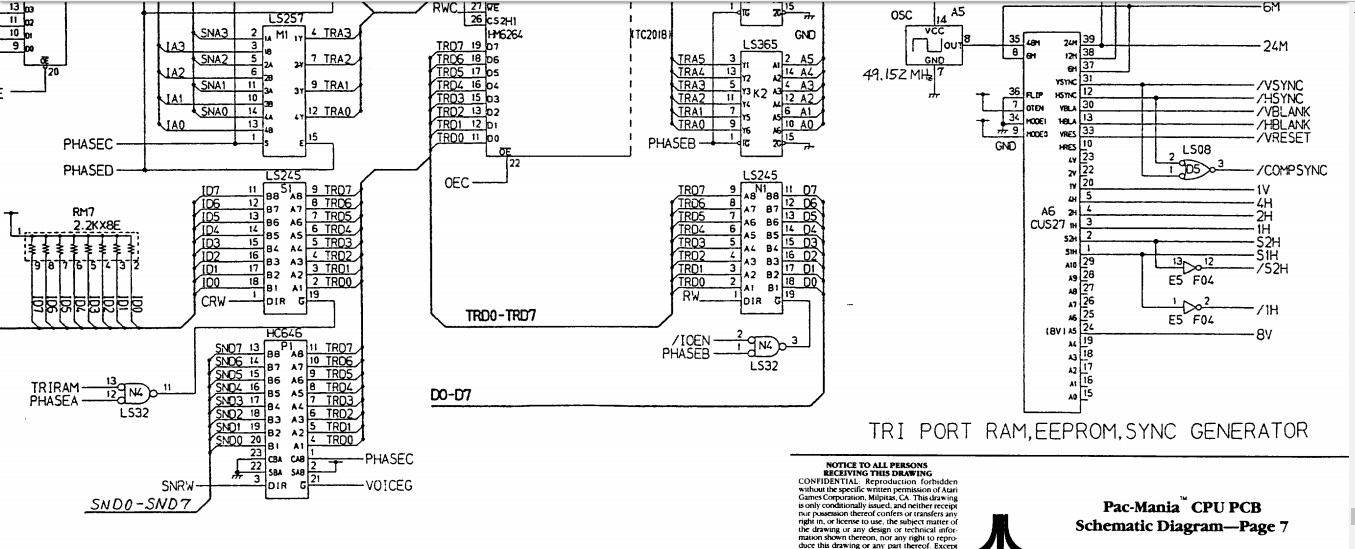
I checked connections, probing the ICs in-circuit with a logic comparator, all was fine.The ony IC I had doubts about was a 74HC646 @P1 :
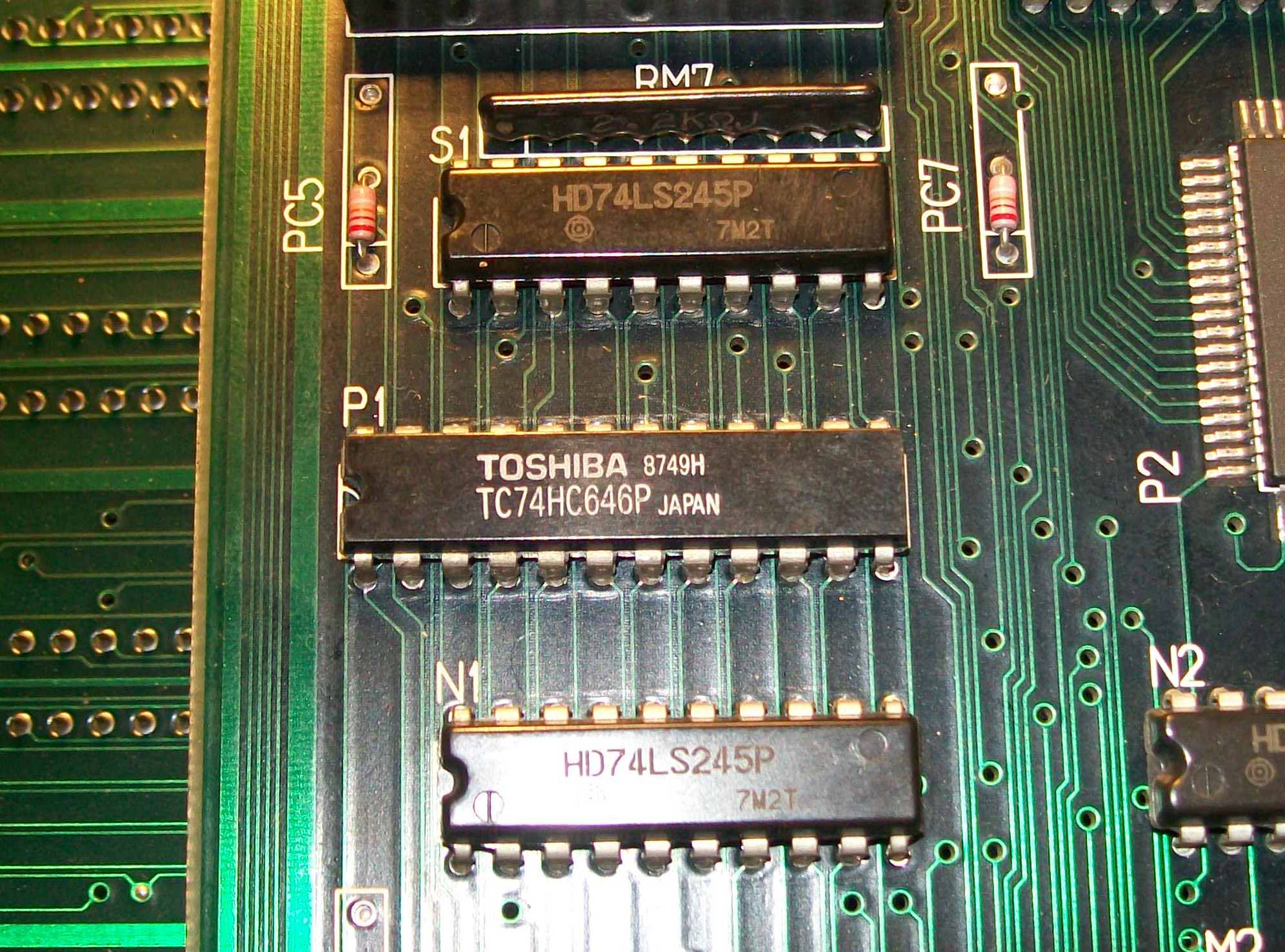
Its signal transitions didn’t seem regular to me :
I decided to remove it anyway and test it out-of-circuit.It failed:
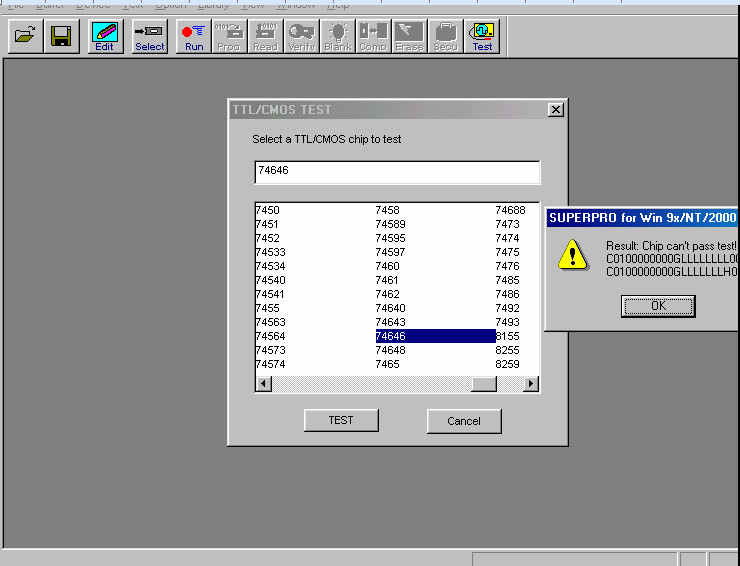
Since it’s an unusual IC (it’s a CMOS device, sensitive to ESD, this could explain the fault) , I took the spare from another faulty Namco System 1 CPU board.This restored the music so I could declare the board as 100% working.

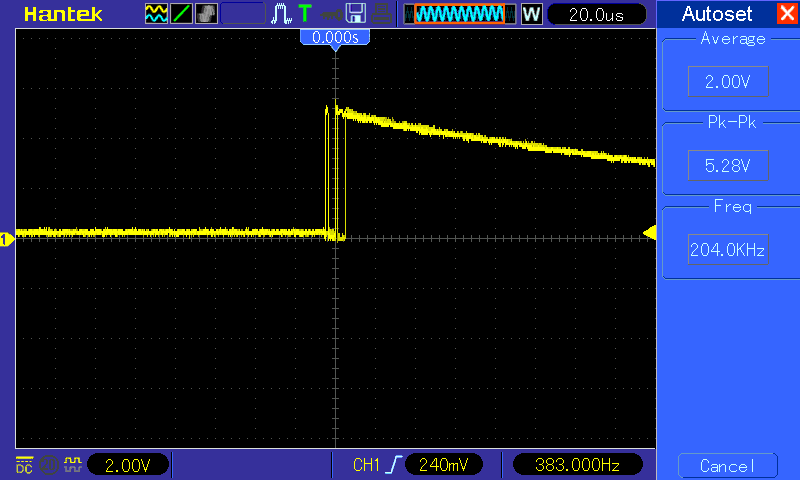

Sorry, the comment form is closed at this time.